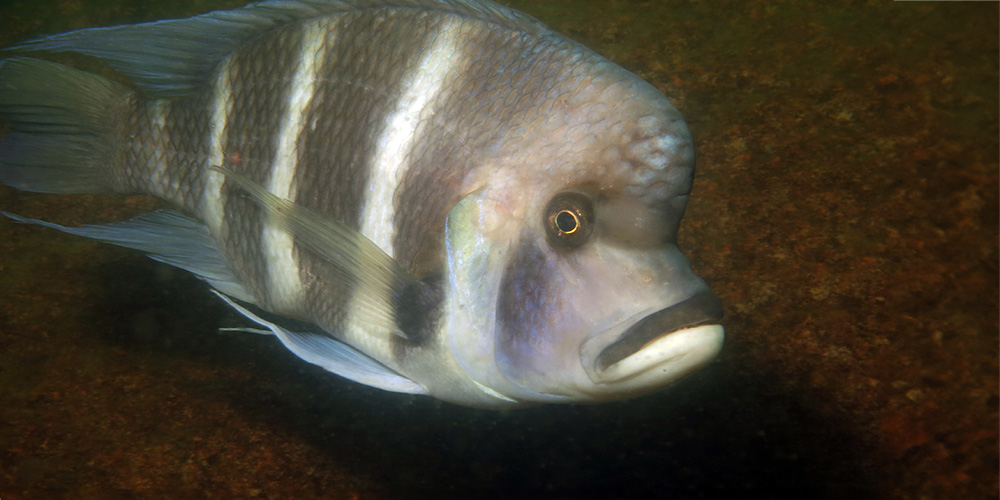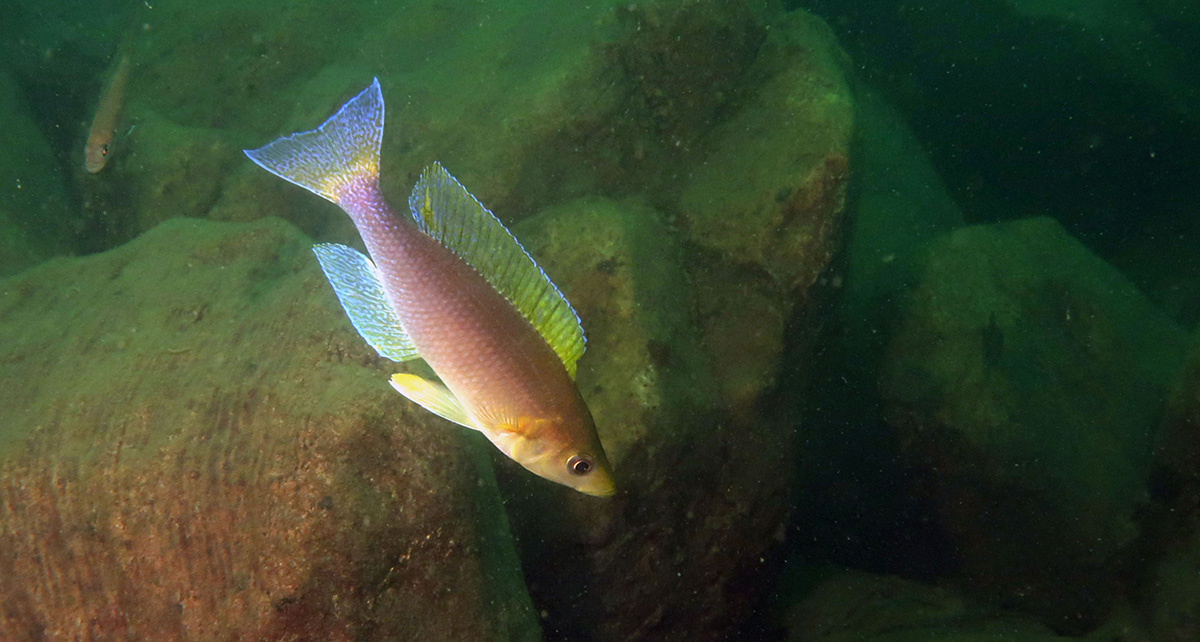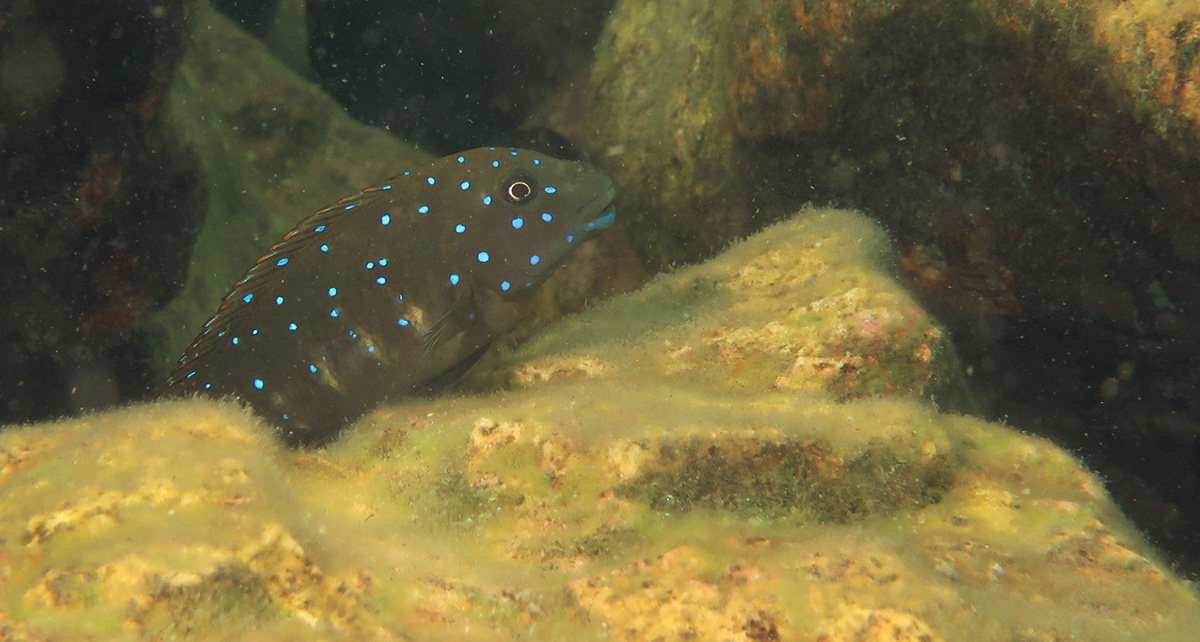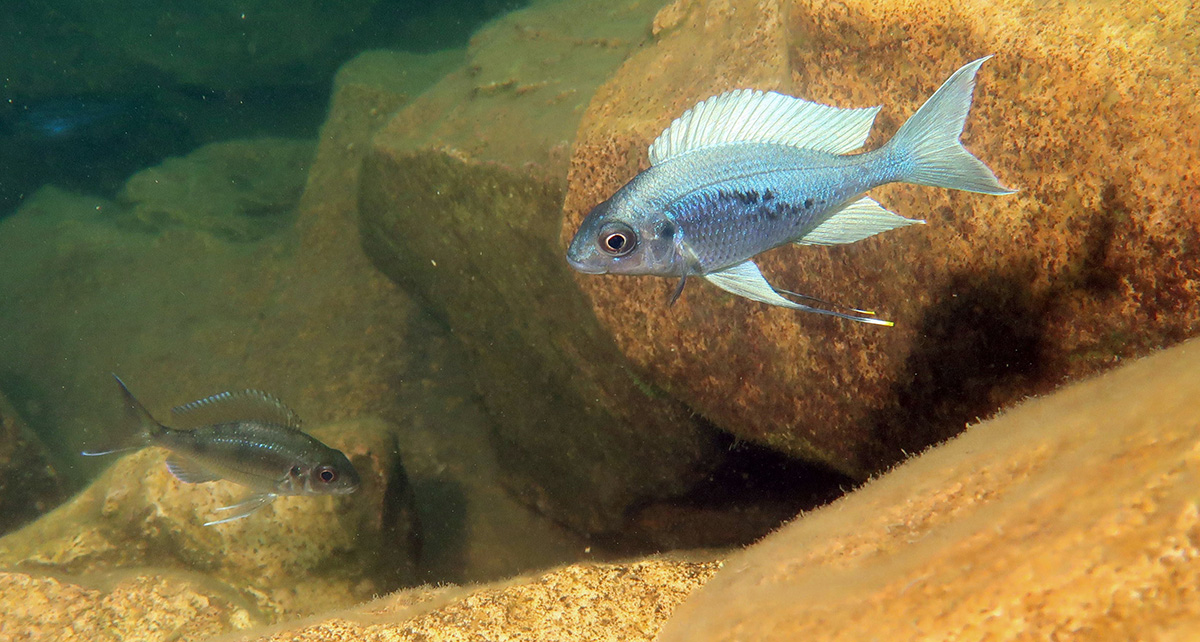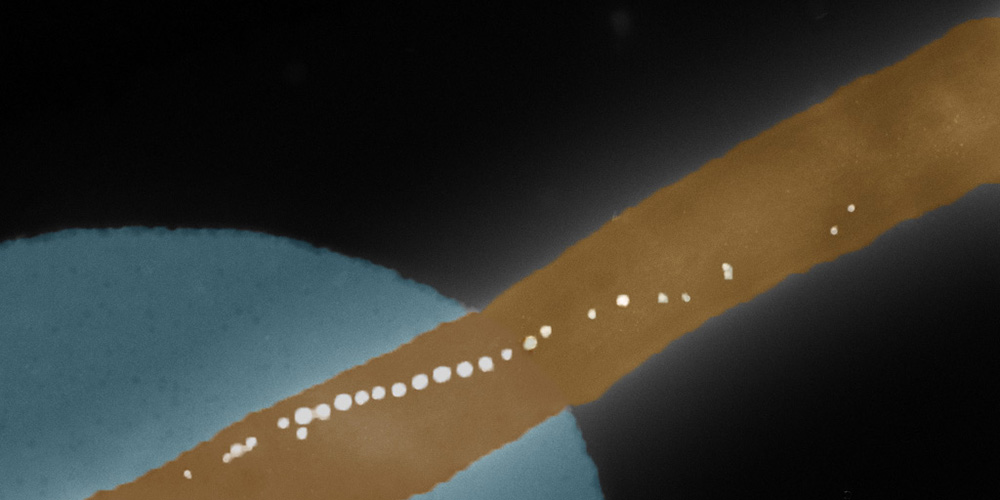Curiosity promotes biodiversity
Cichlid fishes exhibit differing degrees of curiosity. The cause for this lies in their genes, as reported by researchers from the University of Basel in the journal Science. This trait influences the cichlids’ ability to adapt to new habitats.
25 April 2024
Exploratory behavior is one of the fundamental personality traits of animals – and these traits influence their probability of survival, among other things. For example, curious individuals can inhabit different areas in their habitats compared to more cautious conspecifics. At the same time, however, they expose themselves to a greater risk of being discovered and eaten.
Exploratory behavior as a factor in evolution
The cichlids of Africa’s Lake Tanganyika exhibit extraordinary diversity in terms of shape, diet, habitat and coloration. This allows them to inhabit various ecological niches and therefore to engage in less competition with one another. Researchers have long suspected that also curiosity acts as a driver in the formation of new species and therefore biodiversity. Now, a research team led by Professor Walter Salzburger from the University of Basel has used the example of the extremely diverse cichlid fishes of Lake Tanganyika to investigate the role of behavioral differences in adaptation to different ecological niches.
For a total of nine months, first author Dr. Carolin Sommer-Trembo recorded the “exploratory behavior” of 57 different cichlid species at the Southern shore of Lake Tanganyika in Zambia. To this end, the zoologist made video recordings of how the approximately 700 cichlids caught in the lake behaved in a new environment in form of large experimental ponds. She then released the animals back into the wild.
Back in Basel, Sommer-Trembo used these videos to determine which areas of the experimental pond each fish explored within a 15-minute period. “On the whole, large differences in exploratory behavior were observed between the cichlid species, and these differences were also confirmed under laboratory conditions,” says the evolutionary biologist. Detailed analyses of the data revealed a strong correlation between exploratory behavior and the habitat – and body shape – of the respective cichlid species. For example, species that live near the shores, with a bulkybody shape, are more curious than elongated species living in open water. “This puts the focus back on animal behavior as driving force behind key evolutionary processes,” says Sommer-Trembo.
Specific mutations make the fish more curious
In order to investigate the genetic basis of the observed behavioral differences in cichlids, the research team worked together with Dr. Milan Malinsky from the University of Bern to develop a new method for analyzing the existing genomes that allowed them to compare data across different species.
Using their new method, the researchers identified a genetic variant in the genome of cichlids that showed a near perfect correlation with exploratory behavior: species with a “T” at this specific position in the DNA are curious, whereas species with a “C” are less exploratory.
When the researchers used the “genetic scissors” CRISPR-Cas9 to induce targeted mutations in the corresponding region of the genome, the exploratory behavior of the fish changed – they became more curious. Moreover, the team was able to use artificial intelligence and information about the genetic variant, body structure and habitat to predict the exploratory behavior of cichlid species that, initially, had not been examined for their exploratory behavior.
Implications for human behavior?
The genetic variant identified by the researchers is located in the immediate vicinity of the gene cacng5b, which shows activity in the brain. This is the “fishy” version of a gene that is also found in other vertebrates. For example, the human variant is associated with psychiatric diseases such as schizophrenia and bipolar disorders, which may in turn be correlated with personality disorders.
“We’re interested in how personality traits can affect mechanisms of biodiversity in the animal kingdom,” says Sommer-Trembo. “But who knows: ultimately, we might also learn something about the foundations of our own personality.”
Original publication
Carolin Sommer-Trembo et al.
The genetics of niche-specific behavioral tendencies in an adaptive radiation of cichlid fishes
Science (2024) doi: 10.1126/science.adj9228
Further information
Dr. Carolin Sommer-Trembo,University of Basel, Department of Environmental Sciences, Zoology section, email: carolin.sommer-trembo@unibas.ch, phone +41 61 207 03 05
Dr. Milan Malinsky, University of Bern, Institute of Ecology and Evolution, email: milan.malinsky@iee.unibe.ch
Prof. Dr. Walter Salzburger, University of Basel, Department of Environmental Sciences, Zoology section, email: walter.salzburger@unibas.ch, phone +41 61 207 03 03

